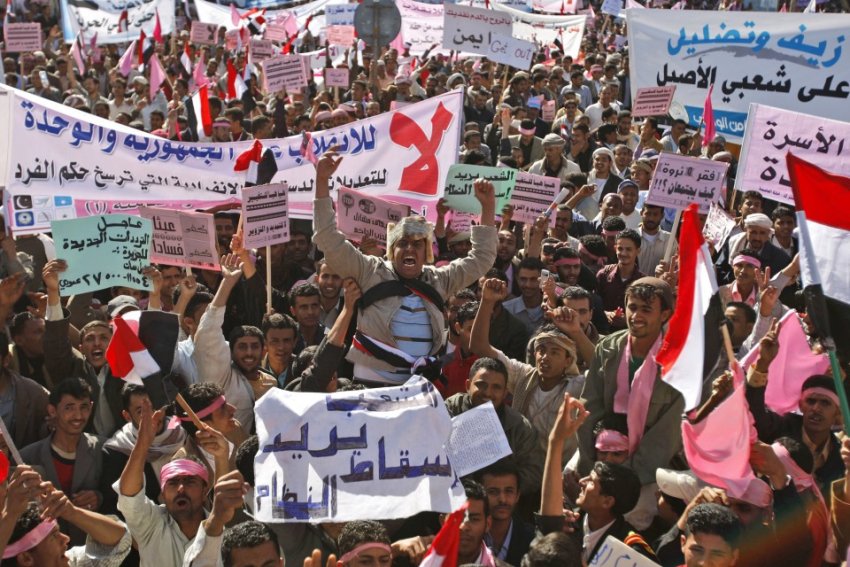
With revolts taking place in 15 countries across the Arab world, those with stakes in maintaining the status quo — especially the United States — are getting worried. From Morocco all the way to Iran, people are standing up for their long-denied rights.
With the exception of Iran, all the regimes under siege are backed by the US to differing degrees. In return, they offer highly favourable conditions for US economic interests to operate. This comes at the expense of the poor majority across the Arab world, in terms of poverty and brutal repression.
The US response to the protests has been cynical — claiming to support democracy in public, while privately encouraging tyrannical regimes to defy the will of their people and cling to power.
The chairperson of the US Joint Chiefs of Staff, Admiral Mike Mullen, arrived in Saudi Arabia on February 20 to discuss ways to quell the protests, News.yahoo.com said that day.
British prime minister David Cameron also made his own trip to “promote democracy” in the region with eight of Britain's leading weapons manufacturers, The Guardian said on February 21.
Cameron said he was “inspired” by Egyptian protesters — before continuing his trip as part of a “marketing drive aimed at military and police buyers”, The Guardian said.
Britain was earlier forced to revoke arms export licences to Bahrain and Libya amid revelations that British arms were used on protesters.
Arab rulers have also shown their fear. Envoys from across the Persian Gulf met on February 17 to declare they were united behind Bahrain's monarch, Associated Press said on February 22. The declaration revealed their fears of unrest intensifying in their own countries if Bahrain were to fall.
So far, protesters have won various concessions as governments attempt to stop the protests. These have included:
- Jordan’s government approved laws making it easier to organise protests and said it would revive a government body that works to ensure basic commodities remain affordable to the poor, the Canadian Press said on February 24.
- Saudi Arabia's King Abdullah introduced programs to relieve crushing poverty and unemployment, and increased wages for government workers, the Canadian Press said on February 24.
- Algeria's government lifted 19-year-old state of emergency laws used to stop political dissent, AlJazeera.net said on February 23. Protesters said the measure did not go far enough.
- In Yemen, several members of the ruling party and high-ranking military officials have split with President Ali Abdullah Saleh over attacks on anti-government protesters, AlJazeera.net said on February 23.
The tens of thousands of demonstrators across the country have called for Saleh to leave immediately. Saleh’s earlier concession not to run for re-election in 2013 or to set up his son as an heir, has failed to stop protests.
The continuing demonstrations show the protesters’ resolve to win significant change.
However, as Tariq Ali said in The Guardian on February 22: “The Arab revolutions, triggered by the economic crisis, have mobilised mass movements, but not every aspect of life has been called into question ... American hegemony in the region has been dented but not destroyed.”
Comments
Anonymous replied on Permalink
Anonymous replied on Permalink
Anonymous replied on Permalink